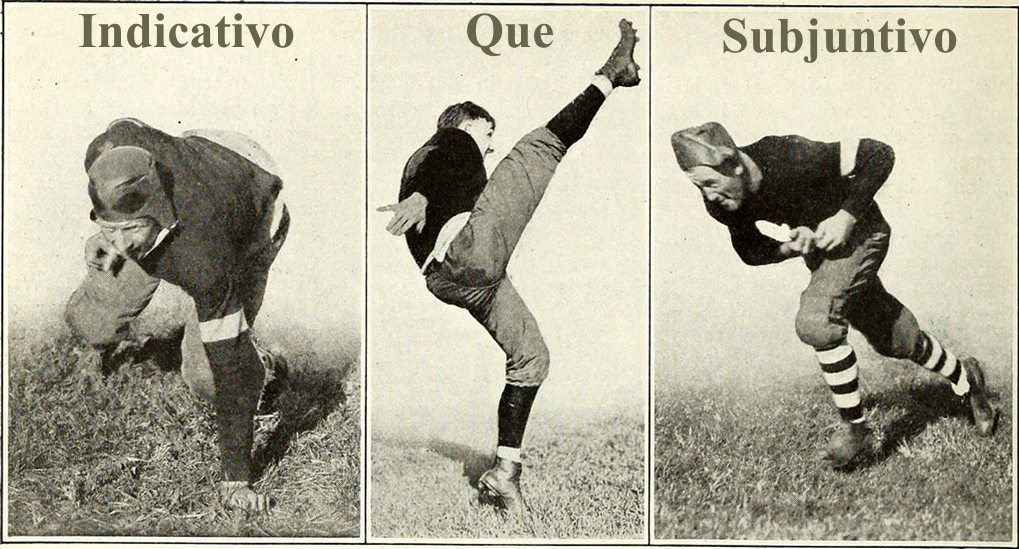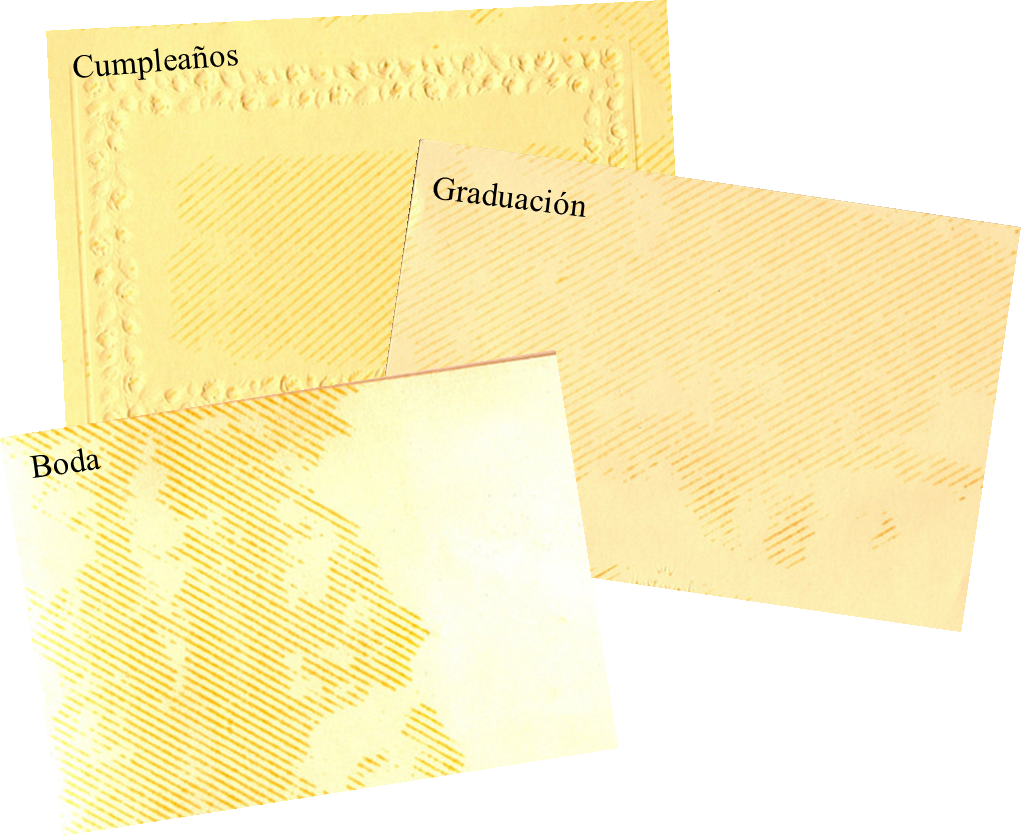10.4: Introduction to the Subjunctive
- Page ID
- 44607
All of the grammatical tenses we have learned so far are in the indicative mood, which means that they are used to state fact and discuss reality.
This is a brief introduction to the Spanish subjunctive mood, which is used in many situations that stray from fact and reality and exist in a state of possibility, uncertainty, or doubt. While there are many uses for the subjunctive, we are going to start with a very common usage:
Wishing, hoping, wanting, needing THAT something happen.
You can wish, hope, want, or need that something happen, but the bottom line is, until it does, it exists within the realm of possibility and uncertainty.
The subjunctive consists of two clauses:
· The first clause is in the indicative (the indicative expresses reality, like the present tense we have already learned).
· THE TWO CLAUSES ARE CONNECTED BY QUE
· The second clause is in the subjunctive (Using opposite endings like the commands we saw recently).
The QUE ‘quecks’ you into the subjunctive!
*There must be a change in subject between the first and second clause.
My mom wants me to study medicine: Mi mamá quiere que yo estudie medicina.
NO CHANGE IN SUBJECT: I want to study medicine. Yo quiero estudiar medicina.

Forming the Subjunctive
To form the subjunctive, use the same process that we used to make formal, plural, and negative informal commands:
1. Start with the yo form of the verb in the present tense. Leave off the –o ending.
2. Add the opposite ending:
The ‘a’ in –ar endings changes to ‘e’
The ‘e’ in –er and –ir endings changes to ‘a’
Of course, there are some irregulars:
Dar: dé, des, dé, demos, deis, den
Estar: esté, estés, esté, estemos, estéis, estén
Ir: vaya, vayas, vaya, vayamos, vayáis, vayan
Ser: sea, seas, sea, seamos, seáis, sean
Saber: sepa, sepas, sepa, sepamos, sepáis, sepan
Haber: haya, hayas, haya, hayamos, hayáis, hayan
Ver: vea, veas, vea, veamos, veáis, vean
Stem-changers: -AR and –ER stem-changers don’t stem change in the nosotros & vosotros forms.
Encontrar (o:ue): encuentre, encuentres, encuentre, encontremos, encontréis, encuentren
Perder (e:ie): pierda, pierdas, pierda, perdamos, perdáis, pierdan
And, no list of irregular verbs would be complete without –IR stem-changers:
Dormir: duerma, duermas, duerma, durmamos, durmáis, duerman
Sentirse: me sienta, te sientas, se sienta, nos sintamos, os sintáis, se sientan
Also, we welcome back our old friends the -CAR, GAR, ZAR’s:
Buscar: busque, busques, busque, busquemos, busquéis, busquen
Llegar: llegue, llegues, llegue, lleguemos, lleguéis, lleguen
Empezar: empiece, empieces, empiece, empecemos, empecéis, empiecen
The u becomes an ü on verbs that end in –guar:
Amenguar (to belittle): amengüe, amengües, amengüe, amengüemos, amengüéis, amengüen
Averiguar (to check/verify):averigüe, averigües, averigüe, averiüemos, averigüéis, averigüen
The u takes an accent on verbs that end in –uar (following a consonant other than “g”), except on the nosotros and vosotros forms:
Continuar: continúe, continúes, continúe, continuemos, continuéis, continúen
Verbs that end in –uir take a ‘y’
Destruir: destruya, destruyas, destruya, destruyamos, destruyáis, destruyan
Verbs that end in –guir drop the ‘u’
Seguir: siga, sigas, siga, sigamos, sigáis, sigan
Verbs that end in –ger or –gir change to ‘j’
Escoger (to choose): escoja, escojas, escoja, escojamos, escojáis, escojan
Elegir (to choose/ to elect): elija, elijas, elija, elijamos, elijáis, elijan
This list is here for your reference.
Focus on highfrequency verbs such as:
· Tener: Ojalá tengas mucho éxito.
· Hacer: Los profesores quieren que sus alumnus hagan la tarea.
· Ser: Ojalá que la clase sea interesante.
· Estar: Necesito que todos estén atentos.
· Haber: Espero que haya refrescos.
· Gustar: Espero que te guste(n).
Wishing, Hoping, Wanting, needing, Recommending, advising
One of the most common uses for the subjunctive is with initial clauses (indicative) that express wishing, hoping, wanting, needing, recommending, advising that something happen.
Look for expressions such as:
Querer que:
Mi’jo, quiero que limpies tu cuarto.
Necesitar que:
Clase, necesito que hagan la tarea.
Esperar que:
Mis padres esperan que yo encuentre un trabajo después de graduarme.
Recomendar (e:ie) que:
El chef recomienda que ustedes prueben la langosta.
Aconsejar que:
La profesora aconseja que nosotros estudiemos el subjuntivo mucho.
Ojalá (que*): *You will hear it both ways
Ojalá que me puedas visitar este verano.




Actividad 10
¡Bienvenidos! You are an international peer mentor on campus and today you are meeting a new group of international students who just arrived on campus. Use the subjunctive to tell them things you want, hope, recommend, and advise that they do on campus and in town during their stay. Video
1.________
2.________
3.________
4.________
Actividad 11
La adolescencia. Whether you’re living them now or you have already survived them, the teen years are rough. You feel like you’re ready to take on the world and make your own choices, but it seems like the adults in your life still always tell you what to do and/or have a tong of expectations for you that they expect you to fulfill. Use the subjunctive to create sentences that say what the groups of adults listed below want teenagers (los adolescentes”) to do (or no to do).
Los padres Los profesores El jefe/La jefa El/la entrenador(a) Los consejeros
1. ________
2.________
3.________
4.________
5. ________
Actividad 12
Tu mentor(a). We’ve all had someone who has influenced us in our life. Write a letter from that person to you that speaks of the advice and hopes they have for your future.
You can make any of these negative by putting ‘no’ before the initial indicative clause OR before your subjunctive clause (except ojalá, where it can only go before the subjunctive clause).
Querid@ ________,
La vida es dura, pero sigue mis consejos y todo será un poquito más facil.
___ Espero que ________.
___ Quiero que ________.
___ Necesito que ________.
___ Recomiendo que ________.
___ Aconsejo que ________.
Ojalá que ________.
Con todo mi cariño,


“May…”
Another common use for the subjunctive mood is to say nice things to other people. Just start off with ‘Que’ (the ‘quiero’ is implied), then go straight into the subjunctive. This often translates to English as “may…”
¡Que te vaya bien!....................................May it go well with you (aka. Have a nice day)!
¡Que tengas buen fin de semana!.............May you have a good weekend.
¡Que aprovechen!....................................May you enjoy (Bon appetite)!
¡Que lo pases bien!.................................May you pass it well (aka. Have a good time)!
Actividad 13



